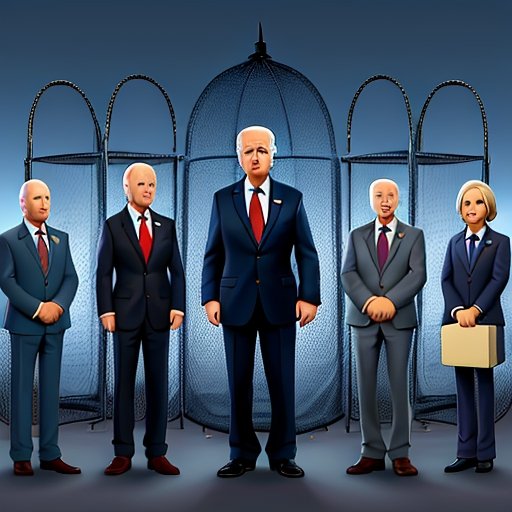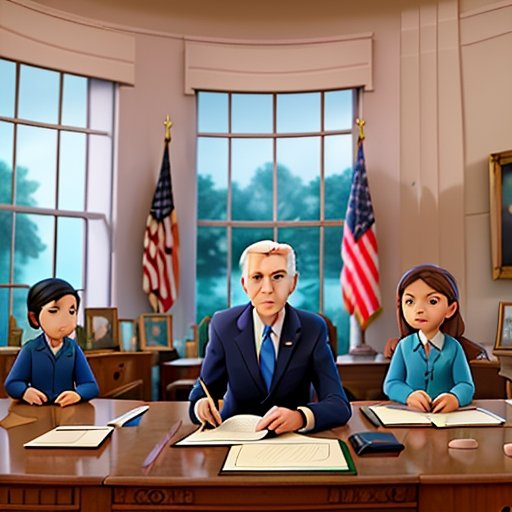Book publishing these days is like a Manhattan cocktail—shaken, not stirred, by liberal politics. And boy, does it lean to the left! A recent peek behind the publishing curtain reveals that approximately 95% of publishing industry leadership and authors identify as left-leaning. Ever wonder why your local bookstore feels more like a progressive rally than a literary haven?
It’s as if the entire industry decided to throw a party, but conservatives weren’t invited. Instead of a diverse buffet of ideas, we’re served a monotonous menu of progressive thought. Talk about a literary echo chamber!
An Overwhelming Leftist Consensus
So, how did we get to a place where conservative thought is rarer than a steak at a vegan barbecue? Surveys paint a picture clearer than a liberal’s tears on election night: most publishing professionals march to the same progressive drumbeat. It’s like they’re auditioning for the same play, where the only role is that of a liberal protagonist. Conservatives, on the other hand, are relegated to the audience—or maybe even escorted out of the theater.
This isn’t just an American phenomenon. This trend has hopped across the pond to the UK and other Western civilizations, ensuring that the sun never sets on the left-leaning empire of publishing. It’s like a game of ideological Monopoly, where progressives own all the properties and conservatives can’t even pass GO.
The “Paradox” of Tolerance
Look no further than an anonymous letter in The Bookseller. Titled “The Paradox of Tolerance,” it calls for inclusivity while simultaneously arguing to silence voices like J.K. Rowling’s for her beliefs on gender. In simpler terms? We’ll tolerate you as long as you agree with us. This baffling scenario props up its inclusivity claims even while it sharpens the knives to cut dissenting thoughts out of the conversation.
It’s like hosting a “diverse” dinner party where everyone’s required to be vegan. Sure, you’ve got a variety of vegetables, but where’s the beef? This kind of thinking would make George Orwell spin in his grave faster than a Democrat changes positions on border security.
Chasing Cultural Shifts and Market Demands
Publishers now seem more interested in market trends than in fostering a free exchange of ideas. Bestsellers are often those that echo progressive values—diversity, equity, and inclusion. But what about the good old-fashioned contrarian perspectives? The classics like Nietzsche didn’t toe any ideological line, and they stirred up quite a brood of thinkers. But try finding a modern equivalent next to self-help and progressive-friendly bestsellers in Barnes & Noble.
It’s as if the publishing world took a page from the Democrat playbook: pander to the loudest voices and ignore the silent majority. Remember when Obama promised to be the most transparent president in history? Yeah, publishers seem about as transparent in their biases as Hillary Clinton’s email server.
Independent Bookstores: An Endangered Species
Once the champions of a diverse literary world, indie bookstores are becoming an endangered species. Corporate giants prefer stocking ‘safe’ political narratives, and independent voices are choked out. If you want something more stimulating, you’ll have to scour the depths of online platforms or the wilderness of self-publishing.
It’s like watching small businesses struggle under Democrat policies. Just as leftist economic policies suffocate mom-and-pop shops, the publishing giants are squeezing out the little guys who dare to offer more than just the “approved” narrative.
Censorship or Consequences?
While direct censorship in publishing is uncommon, ideological gatekeeping is the tool of the trade. Science fiction and fantasy writers who dare to color outside the progressive lines often find themselves at the mercy of cancel culture. Yet commercial success for authors like J.K. Rowling and Jordan Peterson proves there’s a market for alternative viewpoints.
It’s reminiscent of how the mainstream media treated the Hunter Biden laptop story. They tried to bury it faster than a cat in a litter box, but the truth has a way of coming out. Just like how conservative authors find their audience despite the industry’s best efforts to silence them.
Rise of the Rebels and Alternative Platforms
Just when it seemed the publishing world was hopelessly lost in a progressive fog, along came alternative platforms. Independent publishing houses and digital spaces like Substack are becoming sanctuaries for those daring enough to challenge the mainstream. In these brave new worlds, writers can finally stretch their creative wings without worrying whether their perspectives fit into the PC box.
It’s like watching the rise of conservative media in response to the liberal monopoly on mainstream news. Just as Fox News, Newsmax, and the First gave voice to conservative viewpoints in a sea of liberal media, these new platforms are providing a much-needed counterbalance in the publishing world.
Conclusion: Embrace Intellectual Diversity
The publishing industry has excelled in promoting diversity in many ways, but ideological diversity is glaringly absent. Conservative voices deserve to be heard, and intellectual growth thrives on challenging ideas. For the literary world to remain relevant, embracing a wider range of perspectives isn’t just a good idea—it’s essential.
In the end, intellectual diversity will keep bookshelves fresh, minds sharp, and the cultural conversation thoughtful. It’s time for the publishing world to take a page from the Republican playbook: embrace free speech, encourage robust debate, and trust readers to make up their own minds. After all, isn’t that what true democracy—and good literature—is all about?






